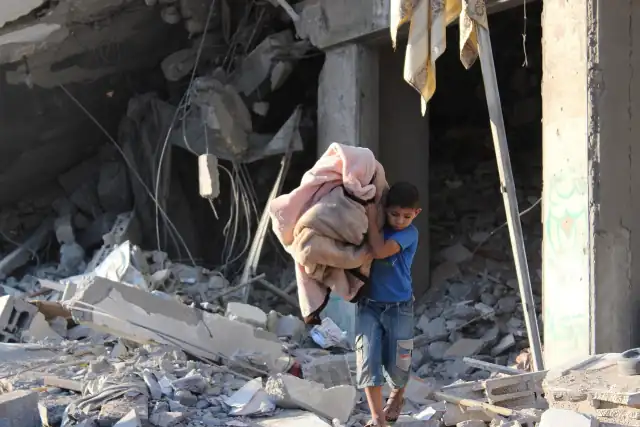
The humanitarian crisis in Gaza has reached catastrophic levels, according to Bulgarian anesthesiologist and intensive care specialist Dr. Milena Angelova-Chi.
Speaking to Bulgarian National Television’s The Day Begins, she described the territory as “apocalyptic” after months of bombardment and siege.
Dr. Angelova-Chi is currently on a medical mission at Al-Nasr Hospital, one of the few remaining facilities still attempting to treat patients.
The hospital, struck again on Monday in an attack that killed five journalists, has been targeted multiple times during the ongoing conflict.
“Yesterday I traveled by public bus to the hospital. Everything is destroyed,” she said. “I wondered what goes through the minds of people passing through their homeland, where all you see are ruins and makeshift tents. Gaza now is only ruins.”
The doctor painted a grim picture of total devastation. She stressed that every aspect of civilian life has been shattered, from homes and schools to farmland and water pipelines.
“Nothing is left. Every house is destroyed. Imagine your home being gone, having nowhere to go, living in a tent. That has been the life of people in Gaza for the past two years,” she said.
Inside the hospital, medical teams face impossible conditions. Most of the patients are suffering from injuries caused by gunfire or explosions, yet doctors have almost no resources to treat them. The blockade has cut off medical supplies, diagnostic tools, and even basic medications.
“Whatever you can imagine is missing—it truly is,” Dr. Angelova-Chi explained. “Treatment is almost impossible.” She added that widespread malnutrition and weakened immunity are compounding the suffering, leaving civilians particularly vulnerable to infection and disease.
The situation at Al-Nasr Hospital reflects a broader collapse of Gaza’s health system. With repeated strikes against medical facilities, the destruction of vital infrastructure, and severe shortages of essential goods, humanitarian organizations warn that conditions are deteriorating rapidly.
For Dr. Angelova-Chi, the experience is deeply harrowing. She described watching patients arrive with life-threatening injuries while lacking even the most basic tools to help them. “The people here are left with nothing but ruins. It is beyond tragic,” she said.
Her testimony adds to mounting international concern over the escalating toll of the war in Gaza, where civilians bear the brunt of both bombardments and the blockade. Human rights groups continue to call for urgent humanitarian access to prevent further loss of life.
As the strikes continue, Dr. Angelova-Chi’s account underscores the human cost of the conflict. For Gaza’s civilians, survival is now defined by scarcity, devastation, and an uncertain tomorrow.
